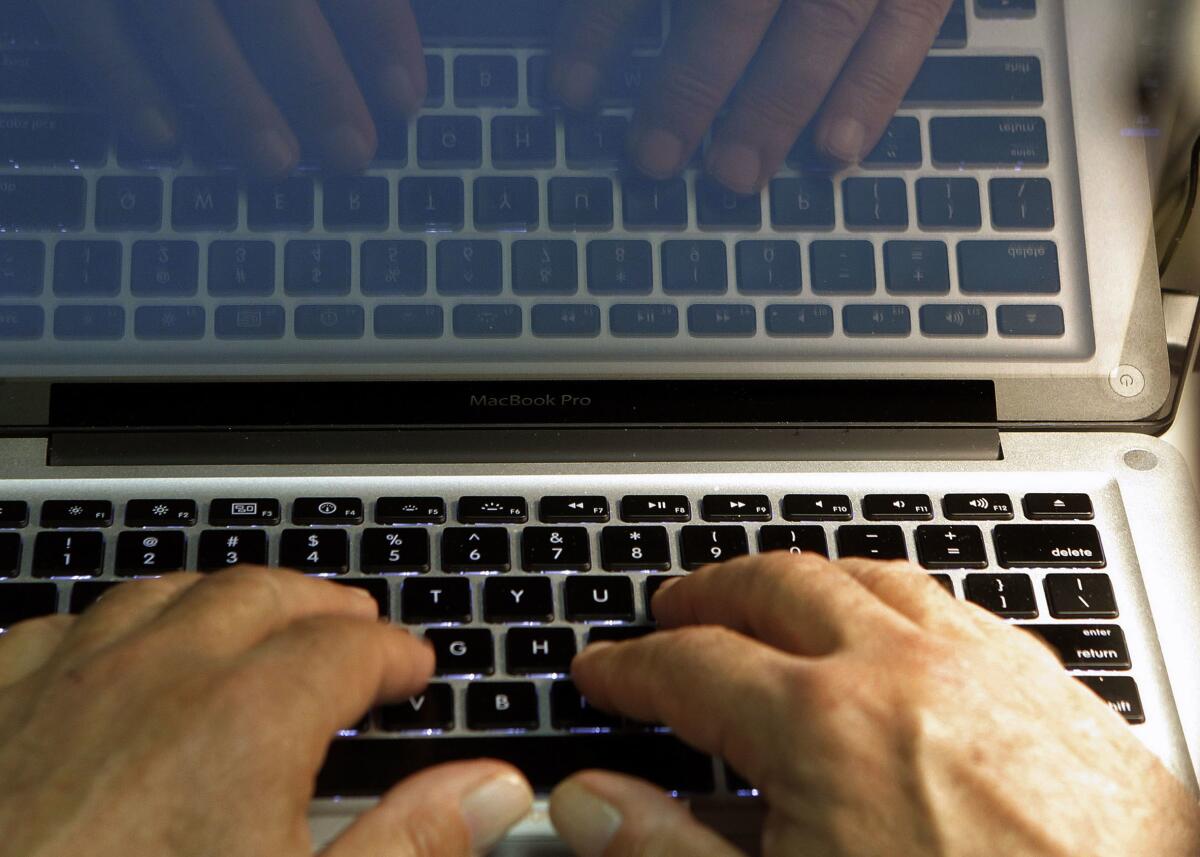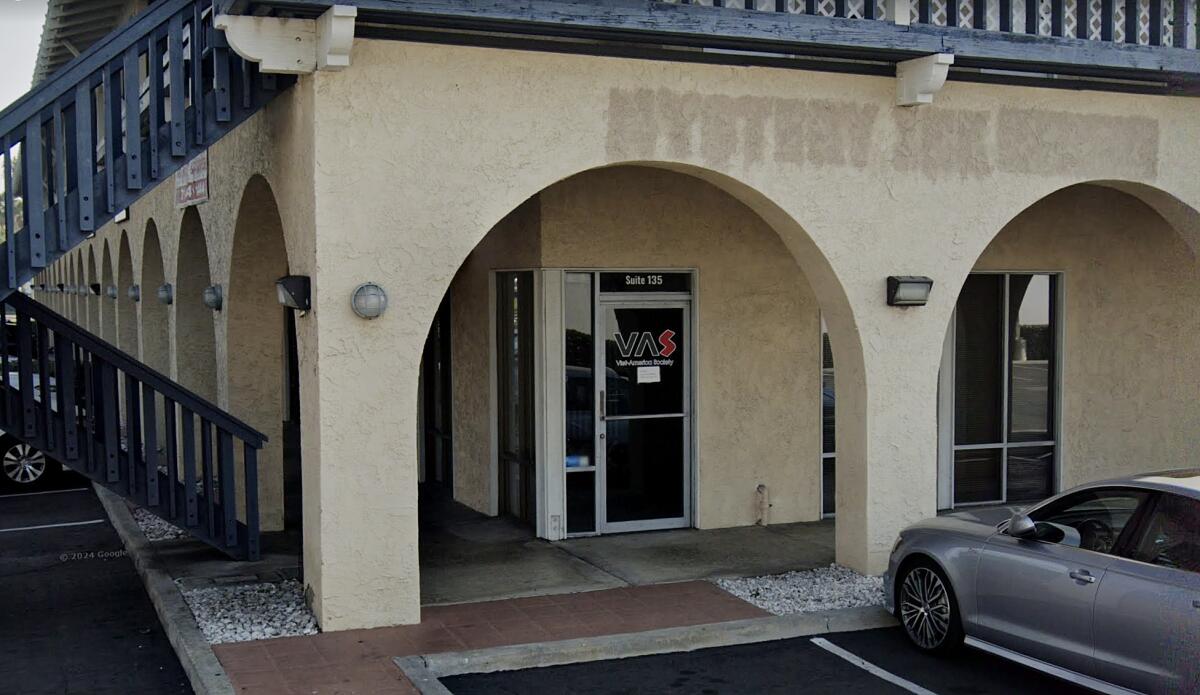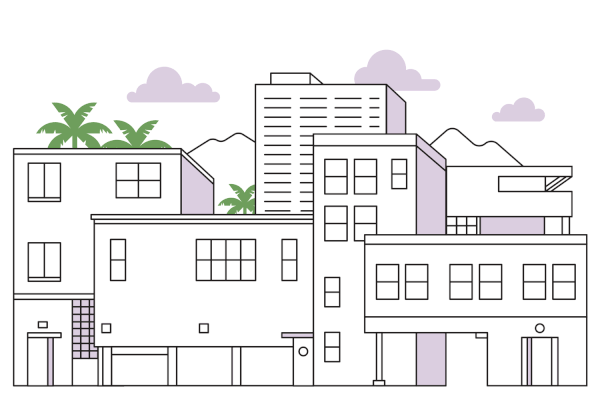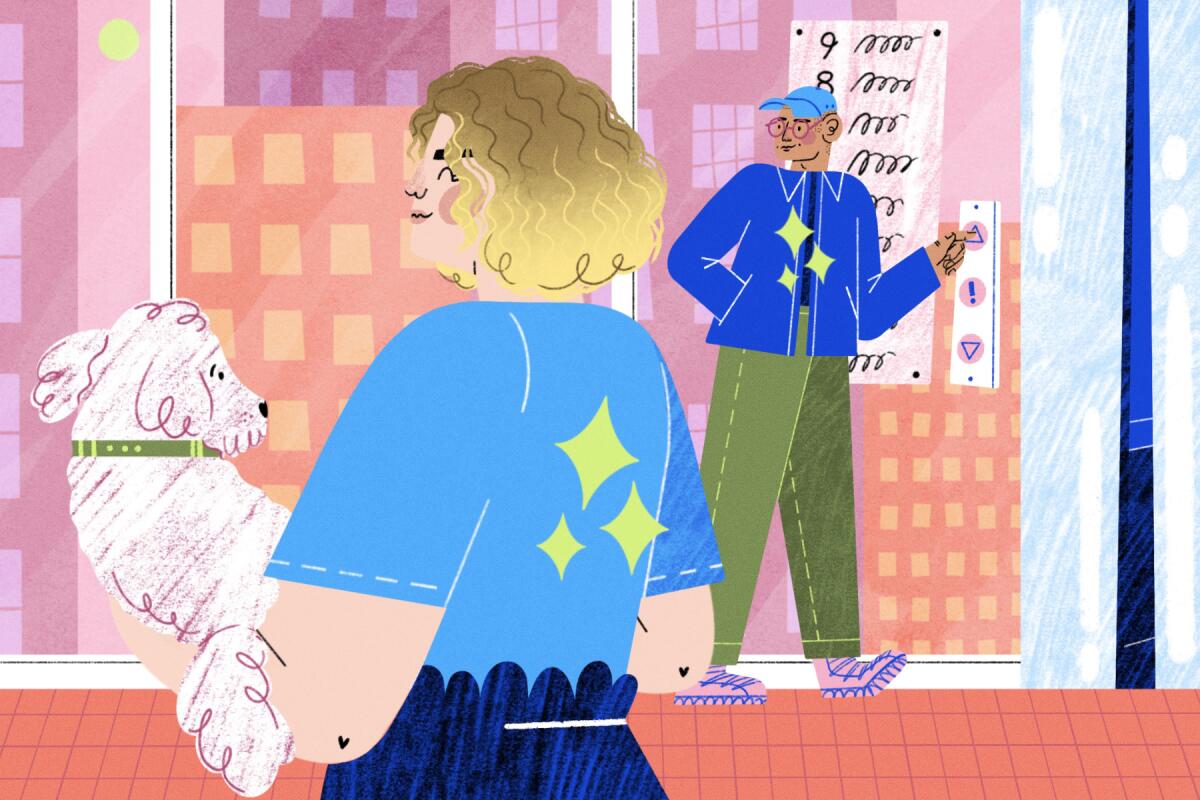Your Social Security number may have been leaked: Here’s how to check, protect yourself

Good morning, and welcome to the Essential California newsletter. It’s Sunday, Aug. 18. I’m your host, Andrew J. Campa. Here’s what you need to know to start your weekend:
- Your private information may have been leaked.
- Orange County alleges nonprofit, supervisor’s daughter ‘plundered’ tax dollars.
- This business won’t flee California but wants some changes.
- And here’s today’s e-newspaper
Sign up for Essential California
The most important California stories and recommendations in your inbox every morning.
You may occasionally receive promotional content from the Los Angeles Times.
Millions of Americans may have had sensitive information leaked
The company whose data breach may have jeopardized every American’s Social Security number and left them vulnerable to identity theft recently made two public admissions about the incident.
The first was an acknowledgment the data theft actually happened, something National Public Data, a Florida-based company that collects personal information for background checks, resisted doing for months.
The company posted a “Security Incident” notice on its site to report “potential leaks of certain data in April 2024 and summer 2024.” The company said the breach appeared to involve a third party “that was trying to hack into data in late December 2023.”
National Public Data also recognized that more personal data may have been released than was previously reported, leaving those affected at graver risk of potential fraud.
What happened?
The hacking group USDoD claimed in April to have stolen personal records of 2.9 billion people from National Public Data, according to a class-action lawsuit filed in U.S. District Court in Fort Lauderdale, Fla.
Posting in a forum popular among hackers, the group offered to sell the data for $3.5 million, a cybersecurity expert said in a post on X.
A purported member of USDoD said last week they were offering “the full NPD database,” according to a screenshot taken by BleepingComputer.
The information consists of about 2.7 billion records. Each includes a person’s full name, address, date of birth, Social Security number and phone number, along with alternate names and birth dates, the member claimed.
What’s new?
National Public Data acknowledged the breach also included email addresses — a crucial piece for identity thieves and fraudsters.
Having a person’s email address makes it easier to target them with phishing attacks, which try to dupe people into revealing passwords to financial accounts or downloading malware that can extract sensitive personal information from devices.
In addition, because many people use their email address to log into online accounts, it could be used to try to hijack those accounts through password resets.
Finding out who was hacked
A free tool from the cybersecurity company Pentester found that other personal data purportedly exposed by the breach, including Social Security numbers, were on the dark web.
National Public Data said on its website that it will notify individuals if there are “further significant developments” applicable to them.
At this point, it appears that the only notice provided by National Public Data is the page on its website, which states, “We are notifying you so that you can take action which will assist to minimize or eliminate potential harm. We strongly advise you to take preventive measures to help prevent and detect any misuse of your information.”
How to protect yourself
The steps recommended by National Public Data include checking your financial accounts for unauthorized activity and placing a free fraud alert on your accounts at the three major credit bureaus, Equifax, Experian and TransUnion.
Once you’ve placed a fraud alert on your accounts, the company advised, ask for a free credit report, then check it for accounts and inquiries that you don’t recognize. “These can be signs of identity theft.”
Security experts also advise putting a freeze on your credit files at the three major credit bureaus. You can do so for free, and it will prevent criminals from taking out loans, signing up for credit cards and opening financial accounts under your name.
The catch is that you’ll need to remember to lift the freeze temporarily if you are obtaining or applying for something that requires a credit check.
In the meantime, security experts say, make sure all of your online accounts use two-factor authentication to make them harder to hijack.
For more on the hack and on tips to protect yourself, check out the latest from editor Jon Healey.
The week’s biggest stories

Crime, courts and policing
- Nonprofit and supervisor’s daughter ‘brazenly plundered’ tax dollars, Orange County says in lawsuit
- Matthew Perry’s shocking last month on ketamine: ‘I wonder how much this moron will pay’
- ‘Law and Order: SVU’ star Mariska Hargitay helped solve thousands of real-life rape cases.
- L.A. officials direct traffic officers to enforce parking laws, tow RVs that people live in.
- Comedian Perry Kurtz killed in L.A. hit-and-run, teenager arrested.
Election 2024
- Walz’s handling of unrest after George Floyd’s death coming under renewed scrutiny.
- Harris offers proposals to cut food and housing costs, trying to blunt Trump’s economic attacks.
- Los Angeles County voters are lukewarm on tax hike for homeless services, poll says.
- Some California cities will allow 16- and 17-year-olds to vote for school board this year.
- New poll shows most California voters want to see tougher punishment for theft, fentanyl crimes.
In memoriam
- BeatKing, the Houston rapper also known as Club Godzilla, dies at 39.
- Maurice Williams, writer and lead singer of ‘Stay,’ dies at 86.
- Maxie Solters, entertainment publicist who joined a family business, dies at 37.
- Wally Amos, founder of Famous Amos cookies and its famous L.A. store on Sunset, has died.
- Jack Russell, Great White frontman who survived deadly nightclub fire, dies at 63.
Climate California
- First-of-its-kind zero-emissions train rolls into San Bernardino.
- Fast, wet and furious: How the North American monsoon floods the California desert.
- Halfway through ‘danger season,’ nearly all of America has been touched by extreme weather.
- Controversial bill to abolish California fire hazard rankings dies in Legislature.
- A 12-foot-long harbinger of doom washed ashore in San Diego.
City and state news
- Column: L.A.’s cracked, ruptured sidewalks are a scandal. Where is City Hall?
- L.A. city attorney wanted $500,000 for outside law firm. The City Council gave her only 10%.
- California auto insurance rates are skyrocketing: Here’s why and how to save.
- Real estate agent commission rules changed Saturday. Here’s what you need to know.
- Top leadership in flux at troubled L.A. Animal Services department as general manager takes unexplained leave.
More big stories
- This controversial California AI bill was amended to quell Silicon Valley fears. Here’s what changed.
- Chargers’ injured quarterback Justin Herbert finally gives protective device the boot.
- How a ‘game-changer’ child tax credit for families became a priority for Harris, Vance.
- Will the new Belle’s Bagels spark a deli culture comeback?
- L.A. woman sentenced to 12 years in Russian prison over $51 donation to Ukraine.
- More than 400,000 students in L.A. have enrolled in Metro’s unlimited free ride program.
Get unlimited access to the Los Angeles Times. Subscribe here.
Column One
Column One is The Times’ home for narrative and longform journalism. Here’s a great piece from this week:
For nearly a decade, Los Angeles has touted its sweeping earthquake safety ordinance — the nation’s toughest, which requires thousands of buildings to be evaluated and strengthened if necessary. But city officials never made it easy for Angelenos to look up retrofit information about their building.
More great reads
- This Orange County city has the hottest housing market in the country.
- Trash, traffic, tempers, tourists: Laguna Beach’s summer of discontent.
- Why some residents of European hot spots just want tourists to stay away.
- ‘I do see poetry and rap as one and the same.’ Noname carries forward a legacy.
- Column: Keep your medal! Olympian Jordan Chiles should slam door on misguided IOC.
How can we make this newsletter more useful? Send comments to [email protected].
For your weekend
Going out
- 🌊 Rapper and comedian Awkwafina breaks down her perfect Sunday, starting with a Jayde’s Market smoothie.
- 👽 The Alien sci-fi horror film franchise is back with its latest rendition: “Alien: Romulus.”
- 🍜 Looking for Bangkok-inspire Thai? Look no further than Atwater Village’s “Holy Basil.”
Staying in
- 📚 Here are the bestselling hard cover fiction, nonfiction, paperback fiction and nonfiction books this week.
- ✒️ Poems of brilliance and beauty, written in the heat of the moment, offer inspiration.
- 🧑🍳 Happy National Fajita Day! Here’s a recipe to make your kitchen sizzle.
- ✏️ Get our free daily crossword puzzle, Sudoku, word search and arcade games.
L.A. Affairs
Get wrapped up in tantalizing stories about dating, relationships and marriage.
A few days later, we met up at Teaspoon, one of the many boba spots on Sawtelle Boulevard. Toward the end of our time together, he put his elbow on the table and raised his open palm. I thought maybe he was challenging me to arm wrestle. Did he know I used to beat all the boys in elementary school? He asked me to put my palm to his. He made sure I was OK with it. I didn’t hesitate. It felt good.
Have a great weekend, from the Essential California team
Andrew J. Campa, reporter
Carlos Lozano, news editor
Check our top stories, topics and the latest articles on latimes.com.
Sign up for Essential California
The most important California stories and recommendations in your inbox every morning.
You may occasionally receive promotional content from the Los Angeles Times.







